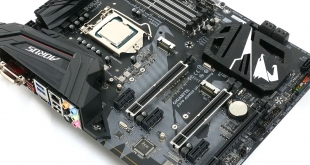
We liked the Z370 Aorus Gaming 7 enough to give it our ‘Must Have’ award, but there is no denying it is fairly expensive at £245. Move down the Gigabyte Aorus product stack past the Z370 Aorus Gaming 5 and you will come to the Z370 Aorus Ultra Gaming that is priced at a very reasonable £158, but despite that hefty saving it appears to offer the vast majority of the features you find in the Gaming 7.
In essence you only get two M.2 slots and a single Gigabit Ethernet port but pretty much everything else is the same. Apart from the VRMs which are completely different and a good deal cheaper. You won’t be surprised to learn we discuss this aspect of the motherboard at length in our video.
If you cannot see the image galleries on this page then you need to disable your ad blocker as they can interfere with our code.
Key features:
Supports 8th Gen Intel Core Processors
Dual Channel Non-ECC Unbuffered DDR4, 4 DIMMs
Intel Optane Memory Ready
ASMedia 3142 USB 3.1 Gen 2 with USB Type-C and Type-A
Front USB 3.1 Gen 1 Type-C Header
Multi-Way Graphics Support with Dual Armor and Ultra Durable Design
ALC1220 120dB SNR HD Audio with Smart Headphone AMP and WIMA audio capacitors
Intel GbE LAN Gaming Network with cFosSpeed Internet Accelerator Software
RGB FUSION with Multi-Zone Digital LED Light Show design, support digital LED & RGB LED strips
Swappable Overlay for Accent LED
Smart Fan 5 features Multiple Temperature Sensors and Hybrid Fan Headers with FAN STOP
Dual Ultra-Fast M.2 with PCIe Gen3 x4 and SATA interface
USB DAC-UP 2 with Adjustable Voltage
Lightning-Fast Intel Thunderbolt 3 Add In Card Support
APP Centre Including EasyTune and Cloud Station Utilities
Full specification HERE
On paper the Z370 Aorus Ultra Gaming appears to offer 95 percent of the features of the Z370 Aorus Gaming 7 at two thirds of the price, although we mention in our video that Newegg in the USA is selling this model at a much lower price. If you simply want to install your CPU, DDR4 RAM, graphics card and SSD you can have the Z370 Aorus Ultra Gaming running in a matter of minutes, and your most likely focus will be on the RGB lighting and the control software.
You need to install the Gigabyte App Centre followed by RGB Fusion and would be advised to also install @BIOS, EasyTune and System Information Viewer. Other pieces of Gigabyte software such as Smart Keyboard, 3D OSD and Cloud Station are less important and can safely be ignored.
Once you have the software installed you can control your new motherboard within Windows and have little need to enter the UEFI set-up screen. That may not be of much interest to the enthusiast but it makes sense for the more casual gamer who doesn’t want to mess around with fan control and clocks speeds in the UEFI. The important thing is that you have the choice of full hands-on UEFI control or working within Windows.
Having said that, we don’t much like the App Centre launcher and would prefer to see a single control suite that was specific to this exact motherboard.
 KitGuru KitGuru.net – Tech News | Hardware News | Hardware Reviews | IOS | Mobile | Gaming | Graphics Cards
KitGuru KitGuru.net – Tech News | Hardware News | Hardware Reviews | IOS | Mobile | Gaming | Graphics Cards


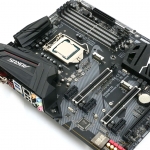
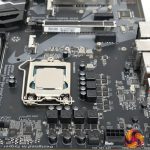
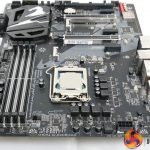
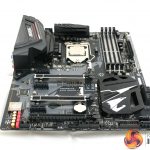
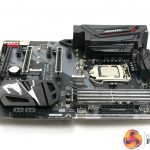
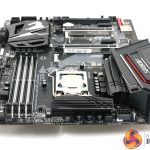
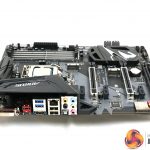
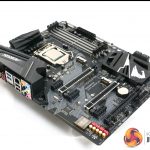
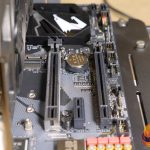
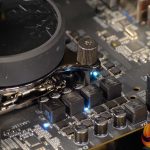






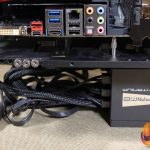



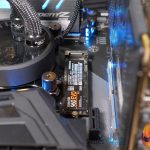
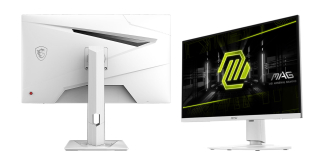
Gigabyte makes great hardware but crap software that ruins the overall experience. They could really use a couple of UX designers, not just randomly sprinkle knobs and buttons over several apps that look like some 1990s sci-fi movie computer.